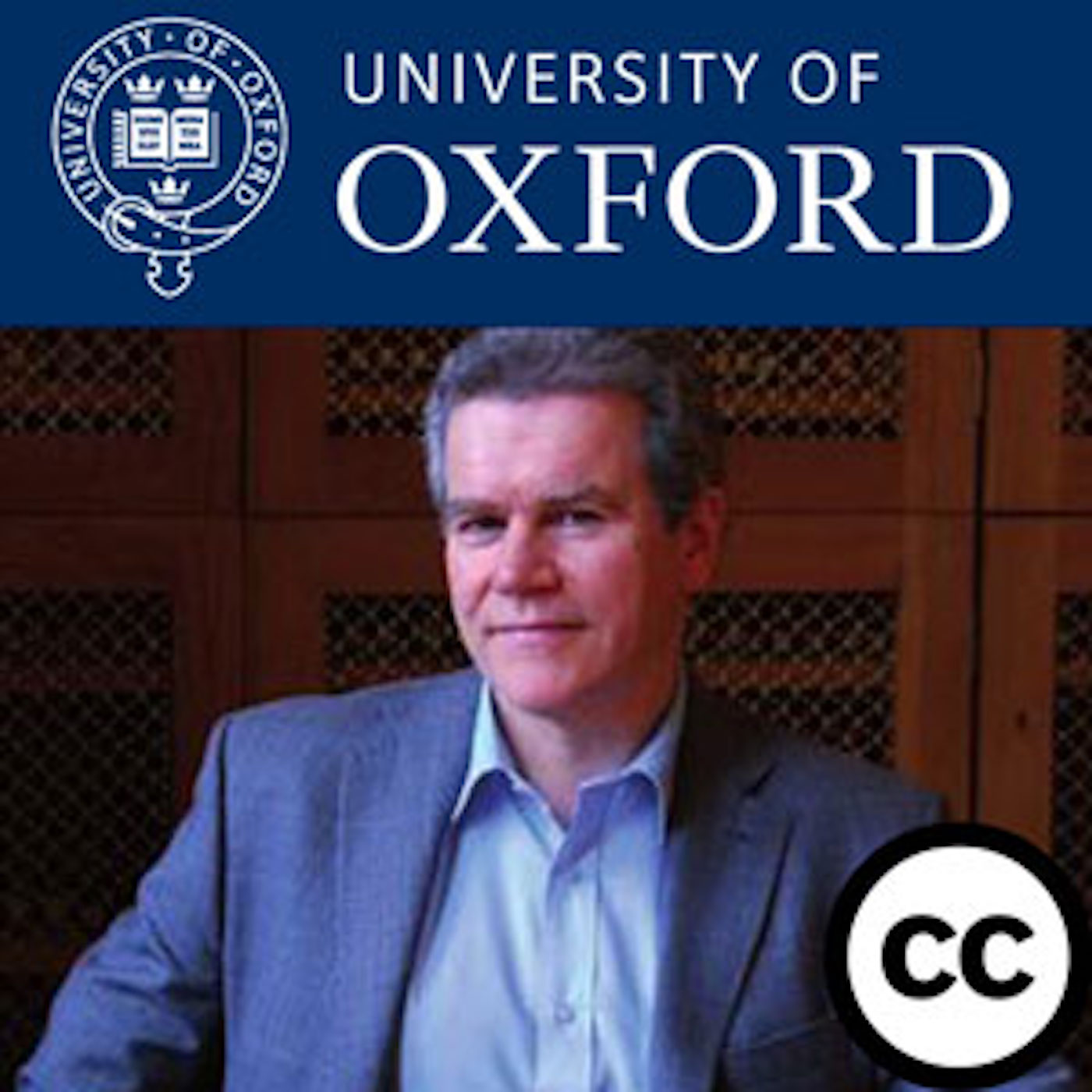

General Philosophy
Oxford University
A series of lectures delivered by Peter Millican to first-year philosophy students at the University of Oxford. The lectures comprise of the 8-week General Philosophy course, delivered to first year undergraduates. These lectures aim to provide a thorough introduction to many philosophical topics and to get students and others interested in thinking about key areas of philosophy. Taking a chronological view of the history of philosophy, each lecture is split into 3 or 4 sections which outline a particular philosophical problem and how different philosophers have attempted to resolve the issue. Individuals interested in the 'big' questions about life such as how we perceive the world, who we are in the world and whether we are free to act will find this series informative, comprehensive and accessible.
Episodes
Mentioned books

Dec 1, 2010 • 11min
8.4 Persons, Humans and Brains
Part 8.4. The final part of this series. Explores the distinction between mind and body and whether this makes a difference to the idea of personal identity.

Dec 1, 2010 • 10min
8.3 Problems for Locke's View of Personal Identity
Part 8.3. Criticisms of Locke's view of personal identity; if personal identity is dependent on memory then how does forgetting personal history and the concept of false memory change Locke's view of personal identity.

Dec 1, 2010 • 15min
8.2 John Locke on Personal Identity
Part 8.2. Looks at John Locke's view of personal identity; how consciousness and 'personal history' distinguish personal identity and the idea of memory as crucial for personal identity.

Dec 1, 2010 • 9min
8.1 Introduction to Personal Identity
Part 8.1. Introduces the concept of personal identity, what is it to be a person, whether someone is the same person over time and Leibniz's law of sameness.

Dec 1, 2010 • 10min
7.4 Making Sense of Free Will and Moral Responsibility
Dive into a philosophical journey exploring the intricate dance between free will and moral responsibility. Unpack Hume's argument that morality springs from human sentiments, even within a deterministic world. Discover how desires shape our actions, contrasting first-order and second-order desires while confronting the challenges posed by addiction. The conversation raises thought-provoking questions about personal freedom and the nature of choice in a seemingly predetermined universe.

Dec 1, 2010 • 10min
7.3 Hume on Liberty and Necessity
Dive into the intriguing tension between free will and determinism as explored through Hume's philosophy. Discover how Hume believes our freedoms are influenced by causal necessity. The discussion highlights how understanding these concepts can deepen our sense of moral responsibility. The connection between our actions and personal motives sheds light on the complexities of human choice. Prepare for a thought-provoking exploration of liberty wrapped in a web of philosophical inquiry!

Dec 1, 2010 • 14min
7.2 Different Concepts of Freedom
Delve into Hobbes and Hume's contrasting views on free will! Explore the complexities of freedom, where Hobbes sees it as the absence of opposition and Hume emphasizes intentionality. The discussion turns to moral dilemmas faced during life-threatening situations, weighing moral responsibility against coercive actions. Different scenarios of leaving a lecture provide a fascinating backdrop to examine how context and intention influence our sense of accountability. Get ready for a thought-provoking exploration of freedom and responsibility!

5 snips
Dec 1, 2010 • 19min
7.1 Free Will, Determinism and Choice
Dive into the captivating debate on free will versus determinism. Discover how moral responsibility intertwines with notions of choice. The discussion navigates complex philosophical theories like libertarianism and compatibilism. With intriguing thought experiments, the speakers unpack what it truly means to have freedom in decision-making. Can we really claim to make free choices, or are they determined by external factors? It's a fascinating exploration of the very essence of human agency.

Nov 30, 2010 • 17min
6.4 Making Sense of Perception
Dive into the fascinating world of perception, where philosophical giants like Locke and Hume come alive. Explore the intriguing divide between our sensory experiences and the tangible reality that lies beyond. Delve into phenomenalism, which suggests that objects are mere logical constructs from our sense data. The debate between direct and indirect realism adds another layer, challenging how we grasp the relationship between our perceptions and the external world. Get ready for a mind-bending journey into the nature of reality!

Nov 30, 2010 • 10min
6.3 Abstraction and Idealism
Delve into the intriguing criticisms of the resemblance theory of perception. Discover how key philosophers like Locke, Berkeley, and Hume tackled the puzzle of primary and secondary qualities. The discussion highlights Berkeley's radical idealism, suggesting our perceptions create reality within our minds. Explore the tension between abstraction and the existence of an external world, questioning if anything exists beyond our ideas.


